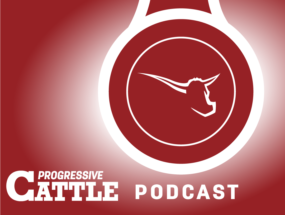Thoughts of “Well, that’ll teach him to get sick,” are running through your mind. Or, perhaps you’re recalling the time your daughter tried convincing you that time on the roping dummy with her would help you in your work as well – so you weren’t really loafing if you took some time to practice just for fun – it was job skill training.
In any event, you now have a scoury calf at the end of your rope (finally), and you’re thinking to yourself, “He won’t be so easy to catch the next time. Maybe if I shoot him up good, I won’t have to catch him again.”
We’ve all been there, and more than likely, we’ll be there again. So, how do you make the decision on how much of your choice medication to give that critter?
This is a perfect opportunity to discuss the Beef Quality Assurance (BQA) topic of extra-label drug use (ELDU).
“What the heck is ELDU?” you may ask. ELDU is any time you use a drug in a manner that is not on the product label. It is if you give Excede to your cat, if you feed MGA to steers or if you give that scoury calf a “little extra” in the hopes that you won’t have to catch him again.
Believe it or not, those labels that the pharmaceutical companies put on drugs and feed additives actually tell you how to use the product. (“What? You mean that label isn’t just a complimentary fire starter? I had no idea!”)
Off-label use isn’t necessarily illegal unless it is in the feed. Feed and supplement labels are a hard and fast legal requirement, but there are some situations where there is some wiggle room on injectable drugs. In order for you to legally be able to take advantage of ELDU, you must be aware of the criteria. ELDU is only legal when done via the instructions from, or personally by a board-certified and licensed veterinarian.
This is where your veterinarian-client relationship becomes quite important. A veterinarian-client relationship exists when:
- The veterinarian assumes the responsibility for judgments regarding an animal’s health and need for treatment, and the client agrees to follow instruction.
- The veterinarian has sufficient knowledge of your animals to initiate a preliminary diagnosis.
- The veterinarian is available for follow-up evaluations and treatment in the event of adverse reactions or treatment failures.
Even if the drug is available over the counter, when we start using it in an off label capacity, it falls under the ELDU category. Use of drugs in an off-label manner may also alter the harvest withdrawal time required prior to harvest, and the vet will determine when that animal is safe to ship. Under the normal use of a drug, the withdrawal times have been clinically tested – ELDU doses have generally not been proven through clinical trials. For this reason, the vet determines the withdrawal times.
What we do on the ranch matters
So, this spring – as some of you are doctoring scoured calves, foot rot cows later this summer and pneumonia calves this fall – keep in mind that sometimes there is more to the responsible use of medicine than we realize. We all have to do what we need to for the health of the animal, and more often than not, we find ourselves out on the range or in the pasture with situations that haven’t been written about in any academic textbooks. These are the moments when decisions are made that truly tell the moral and ethical code of the industry. So do the right thing.
- First and foremost, stay safe.
- Prevent illness when possible through a good vaccine program and sound management practices. And if we have to doctor a critter, use those meds responsibly, in accordance with our BQA guidelines.
- Handle cattle using the lowest stress methods you can.
If you have any questions regarding BQA issues or ELDU, please contact your local extension office, state beef extension specialist, veterinarian or state BQA coordinator. Feel free to give me a call if you wish, or stop in if you’re in the area. I’m always up for a cow-ology discussion. ![]()

Billy Whitehurst
Montana State University Extension
PHOTO
Treating sick animals in the chute or in the field can be stressful or easy on the animal. Neither way is necessarily better or worse. Your proficiency level, the distance to facilities and the temperament of your help (man or beast) may determine the least stressful way to treat a sick one. Pictured here is Billy Whitehurst. Photo by David Cooper.








